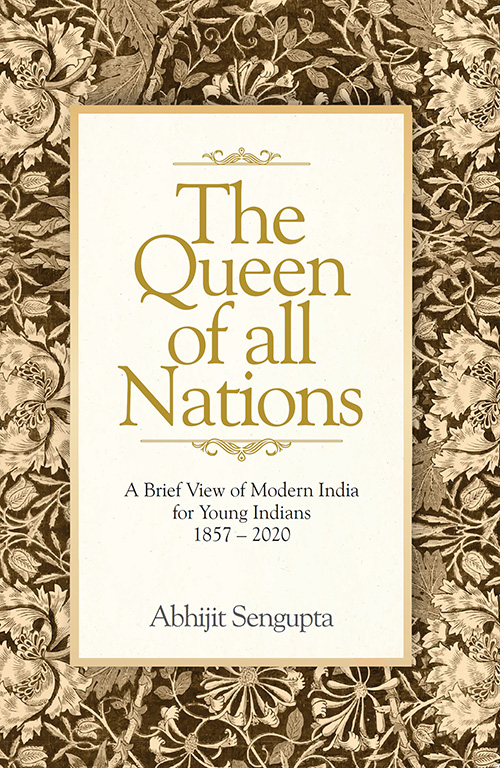The Bharatiya Janata Party is exuding confidence that it will be able to win the floor test in the legislative assembly of Maharashtra, presumably on 30 November, after a Speaker from the party has been elected. How easy or how difficult will this task be? This is a difficult question to answer at present. The BJP has access to huge financial resources to “persuade” MLAs to switch sides, make them suddenly absent themselves from the assembly or even, in extreme situations, allow themselves to be disqualified as elected representatives.
But will money power always work wonders with our not-so-honourable vidhayaks? Or has the ruling party led by Prime Minister Narendra Modi and Home Minister Amit Shah bitten off a bit more than what they can chew? BJP spokesperson and Union Minister Ravi Shankar Prasad was right when he said – albeit in a different context – that the machinations of the past few weeks were all about the fight to control India’s “financial capital.”
Yes, this is all about money. Maharashtra is one of the country’s most industrialised states. The Brihanmumbai (Greater Mumbai) Municipal Corporation is the richest body of its kind in India with an annual budget in excess of Rs 30,000 crore. It is common knowledge that one of the reasons why the Shiv Sena parted ways with the BJP after an ideological association that lasted over three decades was on the issue of who gets to dominate and influence the corporation and the lucrative contracts it gives out. The coming days are expected to witness a lot of money covertly changing hands, in fancy resorts and outside.
The numbers are clear. Not less than 36 (out of the 54) elected MLAs would have to break away from the existing Nationalist Congress Party and join hands with the Ajit Pawar group to support the BJP if they are to remain outside the purview of the anti-defection law as it currently stands. As many as 30 (out of the 44) Congress MLAs in the assembly would have to “split” from their parent party if they do not want to be disqualified. It is anyone’s guess as to how many of the 29 MLAs who are either Independent or belong to “other” small parties are being “approached” to change their allegiances.
All eyes are going to be on who becomes the Speaker of the assembly following the election that is presided over by the pro-tem Speaker who is by convention the senior-most member of the assembly. The Speaker from the BJP and her or his actions will determine how long the new government of Maharashtra lasts. The Speaker will decide which particular combination of parties, groups and possibly, Independent MLAs, would together reach or cross the halfway mark (145) of members of the assembly. Even if the Speaker’s decision on government formation is subsequently challenged in a court of law, the newly-formed government would be in power for at least six months.
Money, once again, would make certain powerful persons remember or forget what has happened. And law-enforcing agencies like the Income Tax Department and the Enforcement Directorate would surely be used again as weapons against the political opponents of those in power at a particular point in time. Thus, Chief Minister Devendra Phadnavis will not remember that he said, not once but several times, that his party, the BJP, would “never, ever” ally with the NCP which he described as the “naturally corrupt” party.
If indeed Ajit Pawar continues for any length of time as Deputy Chief Minister of Maharashtra, a position he earlier held, we can be very sure that little or no progress will be made into the investigations relating to the award of 32 contacts for irrigation projects in the Vidharba region of the state that were worth Rs 13,500 crore and finalised rather quickly within a few months. We can also be certain that the Enforcement Directorate would not expedite its probe into the Rs 25,000 crore scandal in the Maharashtra State Cooperative Bank, in connection with which both uncle and nephew (Ajit Pawar and Sharad Pawar) were raided.
If the Shiv Sena remains out of power (as seems likely at this juncture), the Income Tax Department’s investigations into the finances of particular contractors of the BMC, against whom search-and-seizure raids were recently conducted, would certainly move along a fast track. Depending on which side he supports, the probe into the building company with which former Union Minister Praful Patel of the NCP is linked – together with certain relatives of Iqbal Memon, also known as Iqbal Mirchi, who is said to be associated with India’s “most wanted” man Dawood Ibrahim – would move quickly or not.
And since the BJP is unlikely to lose power in New Delhi in a hurry, we can sure that little will be done to look into the activities of a certain RKW Developers that is connected to the scam-tainted Dewan Housing Finance Limited (DHFL) and which gave a hefty pre-election donation to the ruling party.
We will soon know how big the political loss will be for Sonia Gandhi and Sharad Pawar (who had parted ways with her in 1999 with P A Sangma and N D Tiwari to form the NCP). Surely Modi and Shah know better than most others that in Indian politics there are no permanent friends or enemies. Meanwhile, politicians in Maharashtra will continue to shed crocodile tears for the state’s farmers whose livelihoods are threatened by extreme weather situations brought about by climate change.
Every time some of us naively thought that opportunistic politics in India could not sink to lower depths, we were proved wrong – as we have been once again.


